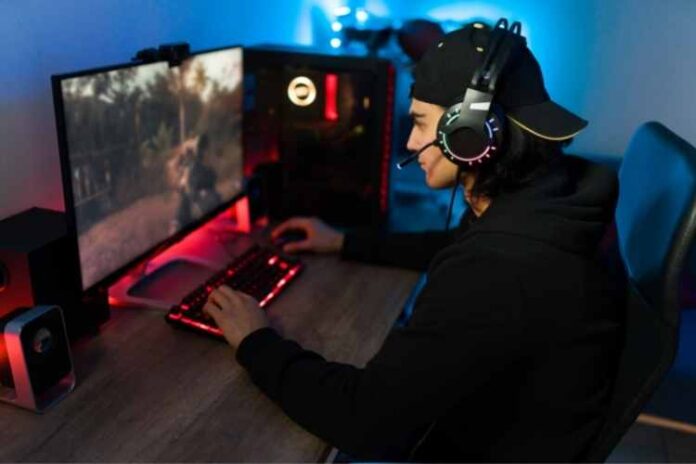Are you a gamer who doesn’t own a gaming PC? Or maybe you’re looking to upgrade your current rig. In either case, you’re probably wondering how much is a gaming PC and if it’s worth the investment.
The cost of a gaming PC can vary depending on how powerful you want it to be. A basic gaming PC can cost as little as $500, while a high-end gaming PC can cost upwards of $5000. Of course, you can always build your gaming PC if you’re feeling ambitious (and we’ll show you how).
In this article, we’ll break down the cost of building a gaming PC. We’ll talk about the different components you’ll need, how much they cost, and how you can save money along the way. By the end of this article, you’ll have a better understanding of how much is a gaming PC and if it’s right for you.
So, how much does it cost to build a gaming PC?
The cost of building a gaming PC can be broken down into four main categories: the CPU, the GPU, storage, and memory. Let’s take a look at each of these components and how much they’ll cost you.
- CPU
Assuming you’re starting from scratch, the most important component in your gaming PC will be the CPU. The CPU is responsible for processing all the information in your game and sending it to the other parts of your PC. A good rule of thumb is to spend about 30% of your total budget on the CPU.
For a high-end gaming PC, you’ll want to look for a CPU with at least 4 cores. The AMD Ryzen 7 2700X is a good option, and it’ll cost you around $330. If you’re looking to save some money, the AMD Ryzen 5 2600 is a great budget-friendly alternative that’ll only set you back about $200.
- GPU
The next most important component in your gaming PC is the GPU. The GPU is responsible for rendering all the graphics in your game. The GPU should account for around 40% of your overall budget. You’ll want a GPU with at least 4GB of VRAM.
If you’re looking for a high-end GPU, the NVIDIA GeForce RTX 2080 Ti is the best option on the market. It’ll set you back about $1200. If you’re looking to save some money, the NVIDIA GeForce GTX 1060 is a great budget-friendly alternative that’ll only set you back about $250.
- Storage
The next component you’ll need to consider is storage. You’ll need to decide how much storage space you need and what type of storage you want. The two main types of storage are hard drives (HDD) and solid-state drives (SSD). SSDs are much faster than HDDs, but they’re also more expensive.
A 1TB hard drive for games and a 250GB solid-state drive (SSD) for your operating system and other applications is a good rule of thumb. A 1TB HDD will cost you about $50, while a 250GB SSD will set you back around $100.
- Memory
The last component you’ll need to consider is memory. Memory, or RAM, is responsible for storing all the data from your games while they’re running. A good rule of thumb is to get 8GB of RAM.
If you’re looking for a high-end option, you can get 16GB of RAM. This will cost you around $100. If you’re looking to save some money, you can get 8GB of RAM for around $60.
How much does it cost to put every component of a gaming PC?
Now that we’ve gone over the different components you’ll need for your gaming PC, let’s talk about how much it’ll cost you to put everything together.
Assuming you’re starting from scratch, the cost of all the components for a gaming PC will set you back about $2000. This includes the cost of the CPU, GPU, storage, memory, and operating system.
Of course, this is just an estimate. The final cost will depend on how powerful you want your gaming PC to be and how much you’re willing to spend.
No matter how much you spend, building your gaming PC can be a great way to get exactly what you want. And, if you put in the time and effort, it can be a fun and rewarding experience. So, what are you waiting for? Start building your dream gaming PC today.







